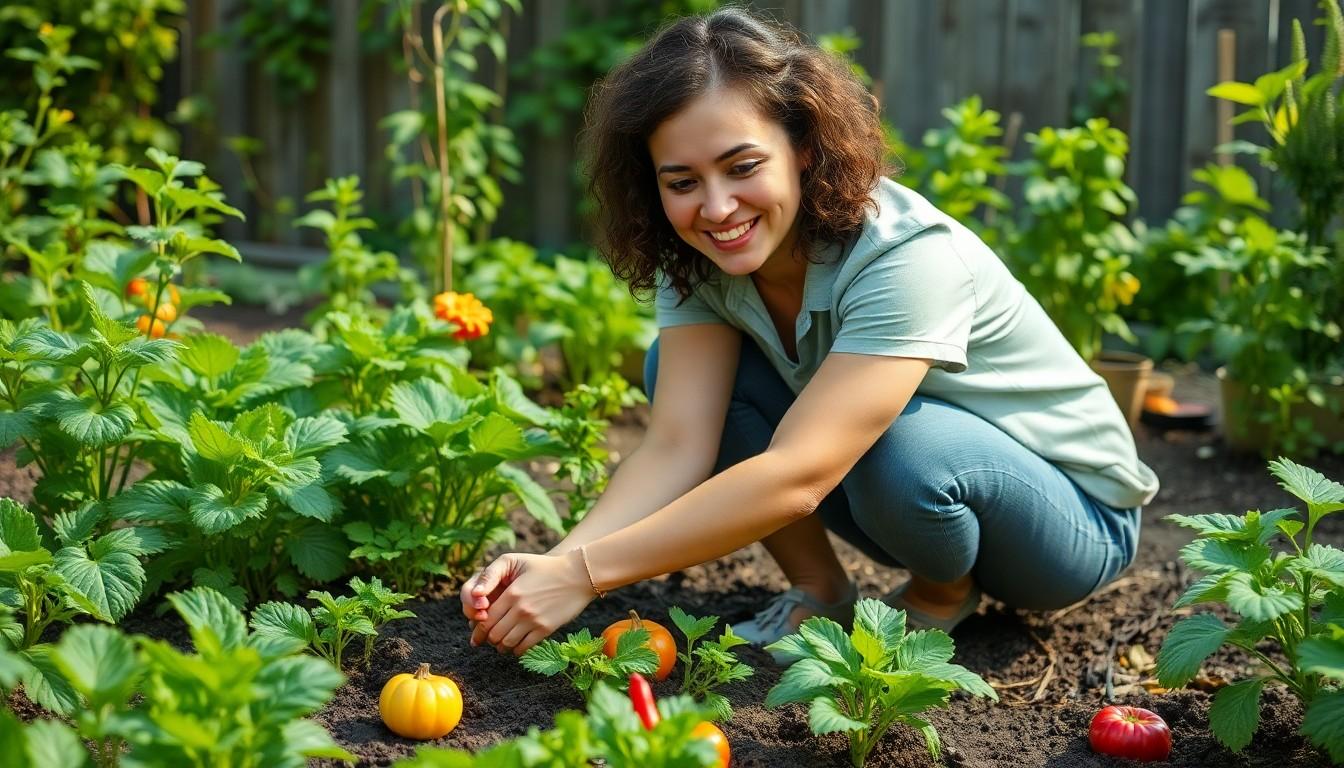Phone:
(701)814-6992
Physical address:
6296 Donnelly Plaza
Ratkeville, Bahamas.

In a world where dependence on grocery stores and utility companies reigns supreme, self-sufficiency emerges as a refreshing alternative. Imagine a life where you grow your own veggies, brew your own coffee, and even fix that leaky sink without calling a plumber. Sounds like a dream, right? Well, it’s time to wake up and smell the homegrown tomatoes!
Self-sufficiency represents the ability to maintain one’s own needs without external assistance. This concept encompasses various aspects of life, including food production, energy independence, and resource management.
Self-sufficiency combines two terms: self and sufficiency. Self indicates independence and autonomy, while sufficiency refers to having enough resources to meet needs. Together, these terms emphasize the ability to independently provide for oneself. This includes cultivating food, generating energy, and managing essential resources without reliance on external systems.
Historically, self-sufficiency has played a crucial role in human survival. Early societies relied on farming and local resources to sustain themselves. As industrialization progressed, dependence on external sources grew. This shift changed community dynamics and lifestyles, often diminishing resilience. In recent decades, movements advocating for self-sufficient living have gained momentum, reflecting a renewed interest in sustainable practices and independence from commercial systems.

Self-sufficiency provides individuals with autonomy, promotes resilience, and reduces dependence on external systems. Embracing this lifestyle not only fosters personal growth but also contributes positively to society and the environment.
Self-sufficiency enhances financial stability for individuals and families. Growing their own food reduces grocery bills significantly, with the opportunity to save around 30% on monthly expenses. Engaging in DIY home repairs leads to savings on labor costs and materials. Individuals can also generate income by selling surplus produce or handmade goods at local markets. This ability to create economic opportunities fosters local economies, boosting community interactions.
Living self-sufficiently offers substantial environmental advantages. Reduced reliance on industrial agriculture decreases carbon footprints significantly. Cultivating gardens and small farms promotes biodiversity, benefiting local ecosystems. Home energy independence, through solar panels or wind turbines, cuts emissions and minimizes energy waste. Sustainable practices associated with self-sufficiency, like composting and rainwater harvesting, enhance soil health and conserve water resources. By prioritizing these methods, individuals contribute to a healthier planet and advocate for eco-friendly habits.
Self-sufficiency encompasses various dimensions that contribute to an independent lifestyle. Understanding these aspects highlights how individuals and communities function autonomously.
Personal self-sufficiency focuses on an individual’s capability to meet their own needs. Growing food at home provides nourishment and reduces grocery costs by approximately 30%. Engaging in home repairs empowers individuals to maintain their living spaces efficiently without relying on external help. Crafting handmade products leads to both self-reliance and potential income. Skills in cooking, sewing, and gardening enhance one’s ability to thrive independently. By cultivating these abilities, people foster a sense of confidence and security in their daily lives.
Community self-sufficiency emphasizes collective efforts to support local needs. Neighborhoods that promote shared resources, such as community gardens, foster cooperation and sustainability. Local farmers markets strengthen regional economies and decrease reliance on imported goods. Programs focusing on skills sharing, like workshops, allow residents to exchange knowledge, enhancing communal resilience. By developing connections among residents, communities can achieve greater autonomy and reduce dependence on external markets and services. Supporting local initiatives creates a vibrant network that prioritizes self-sufficiency and promotes a stable environment for all members.
Self-sufficiency requires strategic planning and execution. By focusing on specific areas, individuals can enhance their ability to meet their own needs effectively.
Building essential skills enables self-sufficiency. Gardening skills allow individuals to cultivate their own food. Home repair skills provide the knowledge to fix issues independently, saving money on professional services. Crafting skills foster the ability to create handmade items for personal use or sale. Expanding culinary skills can also lead to more nutritious meal preparation. Investing time in learning these skills can cultivate confidence and independence.
Effective resource management is crucial for self-sufficiency. By prioritizing sustainable practices, individuals can maximize the use of available resources. Composting minimizes waste while enhancing soil fertility. Rainwater harvesting maximizes water conservation during dry seasons. Additionally, implementing energy-saving measures can decrease utility expenses. Shared community resources, such as tools and materials, further promote efficient usage. Valuing these strategies leads to a more sustainable lifestyle.
Embracing self-sufficiency empowers individuals to take control of their lives and resources. By cultivating skills in gardening, home repair, and resource management, they can reduce reliance on external systems and foster a sustainable lifestyle. The shift towards self-sufficient living not only enhances personal autonomy but also strengthens community bonds through shared resources and collaborative efforts.
As more people recognize the benefits of self-sufficiency, they contribute to a healthier planet and a more resilient economy. This movement reflects a growing desire for independence and sustainability, paving the way for future generations to thrive. Adopting self-sufficiency is more than a trend; it’s a commitment to a self-reliant and environmentally conscious way of life.